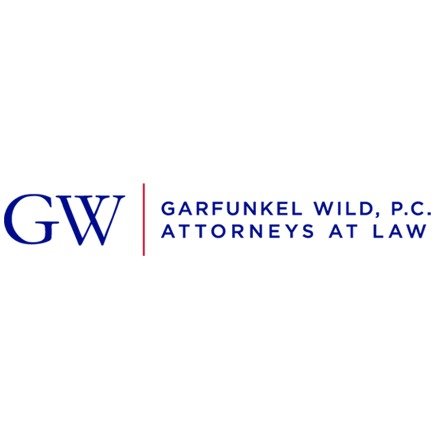Best Financial Services Regulation Lawyers in New York
Share your needs with us, get contacted by law firms.
Free. Takes 2 min.
Or refine your search by selecting a city:
List of the best lawyers in New York, United States
About Financial Services Regulation Law in New York, United States
Financial Services Regulation in New York consists of the laws, rules, and oversight aimed at ensuring the safety, soundness, and fairness of financial activities within the state. This area of law governs entities such as banks, credit unions, mortgage lenders, insurance companies, and investment firms. Regulation in New York is particularly robust due to the state's status as a global financial center. The New York State Department of Financial Services (DFS) is the primary regulatory authority responsible for supervising and enforcing compliance among financial institutions, protecting consumers, and maintaining the integrity of the financial system.
Why You May Need a Lawyer
Dealing with the complexities of financial regulations can be challenging, whether you are an individual, business, or financial professional. Common situations where legal assistance may be valuable include:
- Starting a new financial services business and navigating the licensing process
- Responding to investigations or enforcement actions by regulatory agencies, such as the DFS
- Handling consumer complaints or disputes concerning financial products or services
- Compliance planning to avoid regulatory violations and penalties
- Drafting or reviewing contracts and disclosures for financial transactions
- Seeking guidance on privacy rules, cybersecurity regulations, or anti-money laundering requirements
- Assisting with mergers, acquisitions, or restructuring in the financial sector
- Advising on changes in federal or state laws impacting financial activities
A lawyer with experience in Financial Services Regulation can help interpret local requirements, represent your interests during legal proceedings, and safeguard your rights.
Local Laws Overview
New York's legal framework for financial services is both detailed and dynamic, reflecting the complexity of its financial markets. Key aspects include:
- Department of Financial Services (DFS) Oversight: The DFS is responsible for supervising banks, mortgage providers, insurance companies, and licensed financial entities. Its regulations cover licensing, capital requirements, cybersecurity, recordkeeping, and reporting.
- New York Banking Law: This set of laws addresses the chartering, operation, merger, and liquidation of banks and other financial institutions.
- Insurance Law: New York has comprehensive statutes covering the business of insurance, consumer protections, solvency, and fair claims handling.
- BitLicense and Virtual Currency Regulation: Businesses engaged in virtual currency activities must comply with specific licensing and regulatory requirements.
- Consumer Protection: Strict rules govern how financial institutions advertise products, disclose terms, handle complaints, and treat consumers fairly.
- Anti-Money Laundering (AML) and Cybersecurity: Financial institutions must maintain internal controls to prevent money laundering and ensure data security, in alignment with rules unique to New York, such as DFS Cybersecurity Regulation (23 NYCRR 500).
- Coordination with Federal Laws: New York financial entities often need to comply with both federal and state laws, necessitating close attention to overlapping and sometimes differing requirements.
Frequently Asked Questions
What is the New York Department of Financial Services (DFS)?
The DFS is the state agency that regulates financial institutions and products, including banks, insurance companies, mortgage lenders, and money transmitters operating in New York.
Who must obtain a license to operate a financial services business in New York?
Most businesses engaged in banking, lending, insurance, money transmission, or certain virtual currency activities require specific licenses from the DFS before offering services in New York.
What is a BitLicense and who needs it?
A BitLicense is a special license issued by the DFS for businesses engaged in virtual currency activities, such as exchanging, storing, or transmitting digital currencies. Businesses operating in this space within New York need to apply for and maintain a BitLicense.
How are consumer financial protections enforced in New York?
DFS oversees consumer protection by reviewing complaints, investigating unfair practices, and enforcing regulations governing advertising, disclosures, and lending terms across financial services.
What is the DFS Cybersecurity Regulation?
This regulation requires certain financial institutions to implement safeguards and protocols for protecting sensitive data and information systems, including risk assessments, incident response plans, and regular reporting to the DFS.
Can individuals or companies be fined for failing to comply with financial regulations?
Yes, the DFS can impose significant monetary penalties, order restitution, and take other enforcement actions against those found to be in violation of financial laws and regulations.
Are New York's financial regulations different from federal regulations?
While there is overlap, New York often imposes more stringent requirements, especially in areas such as consumer protection and cybersecurity. Compliance with state and federal laws is usually required.
How do I file a complaint against a financial institution in New York?
Complaints can be filed directly with the DFS through their complaint portal, via mail, or by contacting the Consumer Assistance Unit, which investigates and addresses concerns regarding regulated entities.
What are common investigations or enforcement actions taken by DFS?
DFS can initiate actions related to unauthorized operations, misrepresentation, fraudulent practices, failure to meet capital requirements, cybersecurity lapses, and violations of consumer protection laws.
Do fintech and startup companies face different requirements?
Fintech and startup companies may face additional scrutiny regarding licensing, compliance, and cybersecurity due to the innovative nature of their business models and the evolving regulatory environment in New York.
Additional Resources
When seeking more information or assistance regarding Financial Services Regulation in New York, consider these resources:
- New York State Department of Financial Services (DFS) - The primary regulator for most financial services and products in New York.
- New York State Bar Association - Offers attorney referral services and legal education.
- Consumer Financial Protection Bureau (CFPB) - Provides consumer guidance and accepts complaints on financial products and services.
- Federal Deposit Insurance Corporation (FDIC) - Offers information on banking regulations and deposit insurance.
- Securities and Exchange Commission (SEC) - If your needs involve securities or investment firms.
- Industry trade associations and consumer advocacy groups, which may provide additional guidance or referrals to legal counsel.
Next Steps
If you require legal assistance related to Financial Services Regulation in New York, here are some suggested steps:
- Clearly identify your issue or objective, whether it is compliance, licensing, consumer complaints, or responding to a regulatory inquiry.
- Gather all relevant documentation, including contracts, communications, notices, or correspondence with regulatory agencies.
- Research and select a licensed attorney with experience in New York financial services law and the specific area relevant to your matter.
- Schedule a consultation to discuss your situation, potential strategies, and anticipated costs.
- Continue to monitor regulatory developments and seek ongoing legal guidance as needed, particularly if your business model or the applicable laws are subject to frequent change.
Consulting with a qualified legal professional can help you navigate the complex landscape of financial regulations in New York and protect your interests from unnecessary risks or liabilities.
Lawzana helps you find the best lawyers and law firms in New York through a curated and pre-screened list of qualified legal professionals. Our platform offers rankings and detailed profiles of attorneys and law firms, allowing you to compare based on practice areas, including Financial Services Regulation, experience, and client feedback.
Each profile includes a description of the firm's areas of practice, client reviews, team members and partners, year of establishment, spoken languages, office locations, contact information, social media presence, and any published articles or resources. Most firms on our platform speak English and are experienced in both local and international legal matters.
Get a quote from top-rated law firms in New York, United States — quickly, securely, and without unnecessary hassle.
Disclaimer:
The information provided on this page is for general informational purposes only and does not constitute legal advice. While we strive to ensure the accuracy and relevance of the content, legal information may change over time, and interpretations of the law can vary. You should always consult with a qualified legal professional for advice specific to your situation.
We disclaim all liability for actions taken or not taken based on the content of this page. If you believe any information is incorrect or outdated, please contact us, and we will review and update it where appropriate.
Browse financial services regulation law firms by city in New York
Refine your search by selecting a city.














